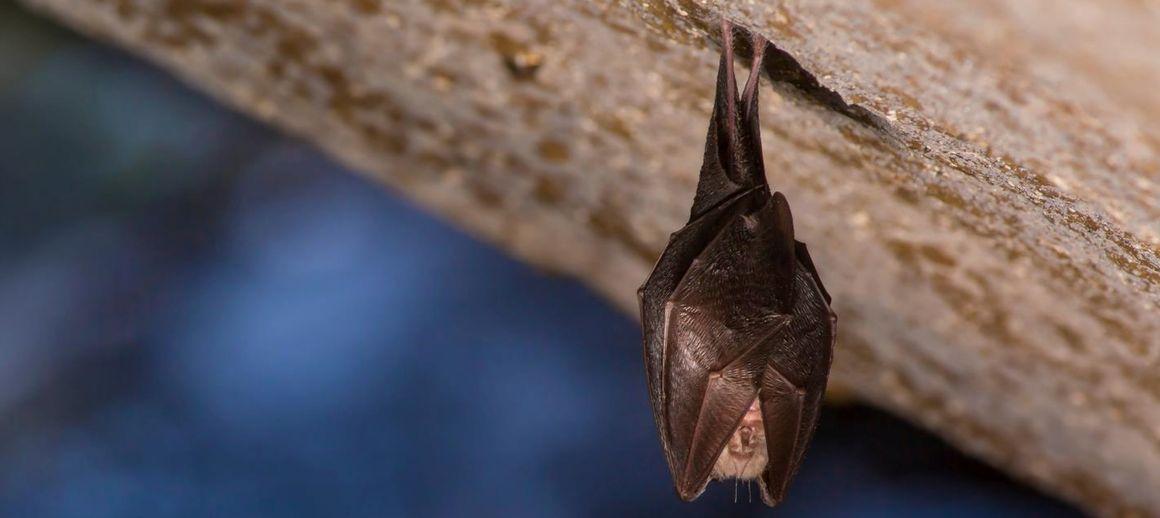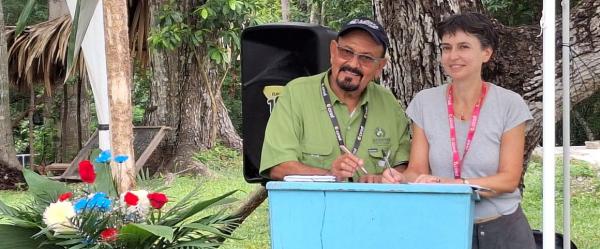Science at work 16 December 2025
- Home
- Press area
- Press releases
- Biodiversity and emergence of infectious diseases
BCOMING: protecting biodiversity serves to prevent the emergence of infectious diseases

Officially launched on September 2022, BCOMING is a project co-funded by Horizon Europe, the European Union's Research and Innovation funding programme. It intends to look at biodiversity conservation as a way of reducing the risks of infectious disease emergence by focusing on three tropical biodiversity hotspots (Cambodia, Guadeloupe and Guinea).
Understanding the importance of preventing biodiversity loss in biodiversity hotspots is key to being able to react to future pandemics. BCOMING will therefore build on past international projects and join forces with the PREZODE initiative, to co-construct innovations with all stakeholders in these regions and implement biodiversity conservation and disease surveillance strategies in Europe as well as selected areas in Southeast Asia, West Africa and the Caribbean.
The BCOMING project is backed by a total EU contribution of 4.9 million euros and involves a strong multi-actor group of 14 partners including academics from the biomedical, environmental and social sciences, private companies, NGOs and local and international stakeholders from Europe, Asia and Africa. Those partners bring the wide range of disciplines and expertise required to achieve all the expected outcomes of the project within the next four years.
BCOMING aims to develop a standardized data collection system and analysis framework to support, together with all the stakeholders, the co-construction of innovative biodiversity conservation strategies and zoonotic disease surveillance systems that will help achieve the goal of reducing the risks of infectious disease emergence.
- Biological sample and standardized epidemiological, ecological, socioeconomic and environmental data collection, followed by processing and analysis specific to each study area. The results of this part are expected to provide a better understanding of the main drivers and mechanisms leading to the emergence of zoonotic diseases and pandemics.
- Following an iterative participatory process in each study area, consisting of three workshops, the knowledge and tools collected will be integrated to develop seven specific agent-based models (ABMs) that will support the design of innovative biodiversity conservation strategies and zoonotic disease surveillance systems.
BCOMING will have the following expected impacts:
- It will lead to a better understanding of the mechanisms underlying the impact of biodiversity on the risk of infectious disease emergence.
- The participatory tools developed will facilitate the design of context-adapted biodiversity conservation and restoration strategies that reduce zoonotic risks.
- The surveillance strategies and pathogen detection tools developed will improve capacity to detect emerging diseases and stop future epidemics before they can turn into pandemics.
- As a result, BCOMING will provide comprehensive policy-relevant scientific information that will in turn improve local decision-making and contribute to the international biodiversity agenda.
BCOMING partners:
• French Agricultural Research Centre for International Development (CIRAD)
• Europa Media Nonprofit Kft. (EM), Hungary
• French National Research Institute for Sustainable Development (IRD)
• Institut Pasteur du Cambodge (IPC), Cambodia
• Avia-GIS NV, Belgium
• Institut National de Recherche pour l'agriculture, l'alimentation et l'environnement (INRAE), France
• Mekong Region Futures Institute (MERFI), Thailand
• Université de Liège (ULIEGE), Belgium
• Universiteit Antwerpen (UANTWERPEN), Belgium
• Helmholtz-Zentrum für Infektionsforschung GmbH (HZI), Germany
• Centre de recherche et de formation en infectiologie de Guinée (CERFIG), Guinea
• Nature Metrics Ltd. (NM), United Kingdom
• Fauna & Flora International (FFI), United Kingdom
• International Development Enterprises (IDE UK), United Kingdom



























